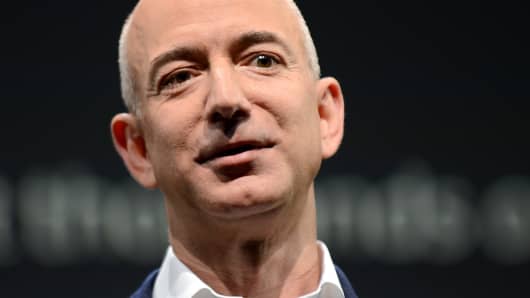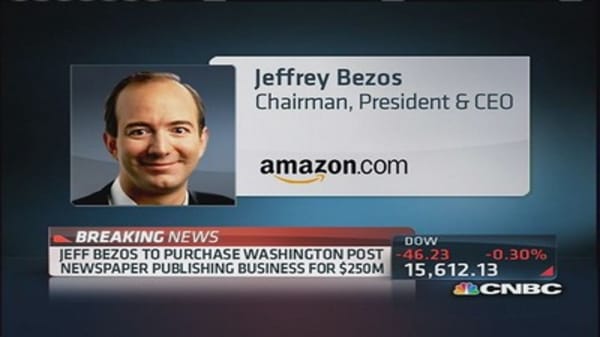AllThingsD reported that Bezos wasn't the only bidder interested in the newspaper, but he was the "best and highest bidder," according to sources. Media bankers Allen & Co. ran the auction.
Bezos said, "I understand the critical role the Post plays in Washington ... and our nation, and the Post's values will not change. Our duty to readers will continue to be the heart of the Post, and I am very optimistic about the future."
John Morton, newspaper industry analyst and president of Morton Research, said he was stunned by the deal and the Graham family's decision to sell a newspaper they have been closely identified with since the 1930s.
"To me, it was inconceivable that [the] family would allow to this to happen, but from a financial point of view you can understand some of the reasons for it," he said. Morton said the newspapers have been a problem area for a while and clearly affected the stock price.
Some traders weren't sold on Bezos's ability to turn a profit at the newspaper unit.
Bezos "certainly has a history of running companies at low levels of profitability," Brad Safalow, founder and CEO of PAA Research, said on CNBC's "Fast Money." "I don't really see a scenario in which the Washington Post can be run as a profitable entity, but maybe that's not really his objective here."
(Read more: What Post sale means for company, Bezos: Pro)
This is the second newspaper deal in the past few days. On Saturday, the New York Times Co. agreed to sell The Boston Globe and its other New England media properties to John Henry, principal owner of the Boston Red Sox, for $70 million.
(Read more: New York Times Co. Sells Boston Globe)
The Washington Post deal does not include Slate magazine, TheRoot.com or Foreign Policy magazine.
The Washington Post Co., which also owns Kaplan, the education testing business, will change its name within 60 days of completing the transaction, according to an SEC filing.
The stock price could move higher now that the company is shedding its newspapers, according to Morton.
"The assets are attractive, and the company would attract a higher stock price because it would be unencumbered by the newspaper weighing it down," he said.






